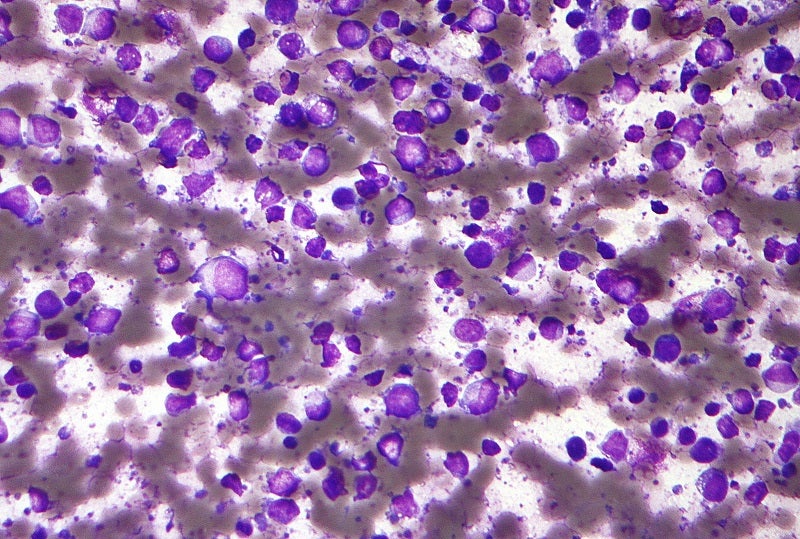
Adaptive Biotechnologies has introduced its new clonoSEQ Assay for detecting minimal residual disease (MRD) in the blood of diffuse large B-cell lymphoma (DLBCL) patients.
The new assay can evaluate the MRD status in a DLBCL patient by measuring the circulating tumour DNA (ctDNA), the DNA fragments released into the blood by dying cancer cells that can be used as a measure of tumour burden.

Discover B2B Marketing That Performs
Combine business intelligence and editorial excellence to reach engaged professionals across 36 leading media platforms.
It uses the company’s immune medicine platform to find and quantify specific DNA sequences that are found in malignant cells to evaluate and monitor MRD during and after treatment.
The assay also provides accurate, standardised and sensitive MRD measurement that helps clinicians predict patient outcomes, monitor patients during remission, study response to therapy over time, and also predict potential relapse.
The company stated that ClonoSEQ is available as a Clinical Laboratory Improvement Amendments (CLIA)-validated laboratory-designed test (LDT) for DLBCL, and that the company will start accepting DLBCL blood samples in Streck tubes from this week.
This will expand access to ctDNA-based MRD testing for clinicians and patients.

US Tariffs are shifting - will you react or anticipate?
Don’t let policy changes catch you off guard. Stay proactive with real-time data and expert analysis.
By GlobalDataAdaptive Biotechnologies MRD chief commercial officer Nitin Sood said: “We are excited to continue to expand access to clonoSEQ as a highly specific and less invasive tool for DLBCL monitoring, which will complement the current standard imaging methods.
“By measuring ctDNA in blood, clonoSEQ provides clinicians with a sensitive and quantitative assessment of disease burden so that they can detect relapse sooner and are better equipped to create a more precise treatment plan for each patient.”
Regardless of the line of therapy, treatment regimen or testing timepoint, all DLBCL patients are eligible for clonoSEQ MRD testing covered by Medicare for DLBCL.
The clonoSEQ assay is claimed to be the first and only MRD test to receive Medicare coverage in DLBCL.





